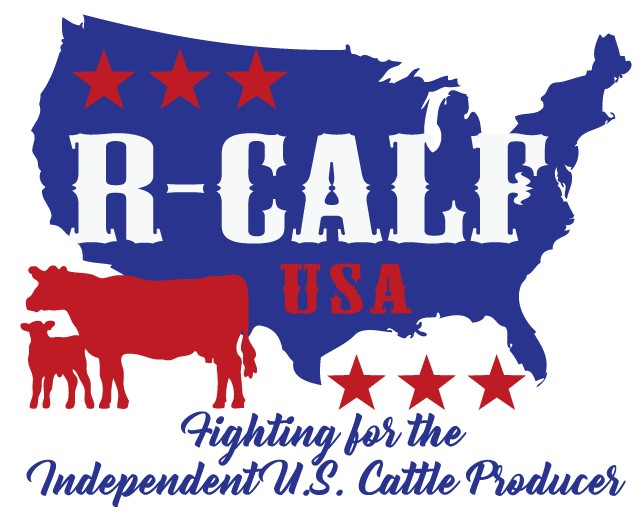- Tweet
- Printer Friendly

R-Calf Withholds Endorsement of Contract Library Bill
Billings, Mont. – R-CALF USA, the largest cattle producer-only trade association representing the U.S. cattle industry, is reportedly the only national cattle group that has not yet endorsed the ‘‘Cattle Contract Library Act of 2021” (H.R.5609) introduced yesterday in Congress by Representative Dusty Johnson (R-S.D.), Henry Cuellar (D-Texas), and 16 other House members.
The contract library bill requires beef packers to provide details of the types of forward contracts they use for purchasing fed cattle (cattle produced specifically for beef production) that are not purchased in the negotiated cash market, which is the price discovery market for the cattle industry. The bill also requires the U.S. Department of Agriculture (USDA) to publicly report the total number of cattle that beef packers have committed to them six months and 12 months into the future.
The bill is a response for calls by cattle producers to increase transparency in a market that for several years has produced low prices for cattle producers and high prices for beef consumers. The bill is on a fast-track and is scheduled for mark-up in the U.S. House Committee on Agriculture tomorrow.
R-CALF USA’s board of directors reviewed the bill and determined it does not address the competition-disrupting leverage the highly concentrated beef packers now hold over the cattle market and that new methods of cattle procurement in use today by the largest beef packers may fall outside the scope of the bill.
“The problem with our broken market is not that we don’t know the details of the contracts that confer market leverage to the packers, the problem is there are too many contracts and because of that, our price discovery market is being destroyed,” said Iowa cattle feeder and R-CALF USA Director Eric Nelson.
Nelson said the 50/14 bill, S.949, introduced by Senators Grassley (R-Iowa) and Tester (D-Mont.) addresses this serious problem by increasing the volume in the price discovery market and decreasing the volume of contracted cattle.
“I want to continue selling cattle in the price discovery market, but only if Congress preserves it will I have that chance. Putting a contract library ahead of taking action to preserve our price discovery market sends a signal that more contracts are good and more producers should try to access them. This is not what is needed,” Nelson said.
R-CALF USA CEO Bill Bullard said his group is also concerned with the new cattle procurement methods now in use that do not specifically fit within the categories established in the contract library bill. He cited the recently disclosed Cattle Feeding Agreement between Tyson Fresh Meats and Easterday Ranches, Inc. (Easterday), which is one of the nation’s largest cattle feeding companies.
“We’ve always considered Easterday as among the nation’s largest contract cattle feeders, but the Cattle Feeding Agreement between Tyson and Easterday appears to be a hybrid agreement that blurs the line between contracted cattle and packer-owned cattle, and the contract library bill does not expressly include any packer-owned cattle.
“We have to presume there are more of these hybrid-type agreements out there between the largest packers and largest feedlots and if they aren’t expressly captured in reports generated under a contract library bill, then the information available to the industry will remain incomplete and skewed,” he said.
Bullard said his group is focusing its resources toward restoring competition in the broken cattle market by urging swift passage of the 50/14 bill, S.949, and the recently introduced mandatory country-of-origin labeling bill for beef, S.2716.
“We’ll continue our assessment of the contract library bill, but we first have to restore genuine competition to the cattle market that is not returning the cost of production to our cattle-producing member,” Bullard concluded.
Source: R-Calf